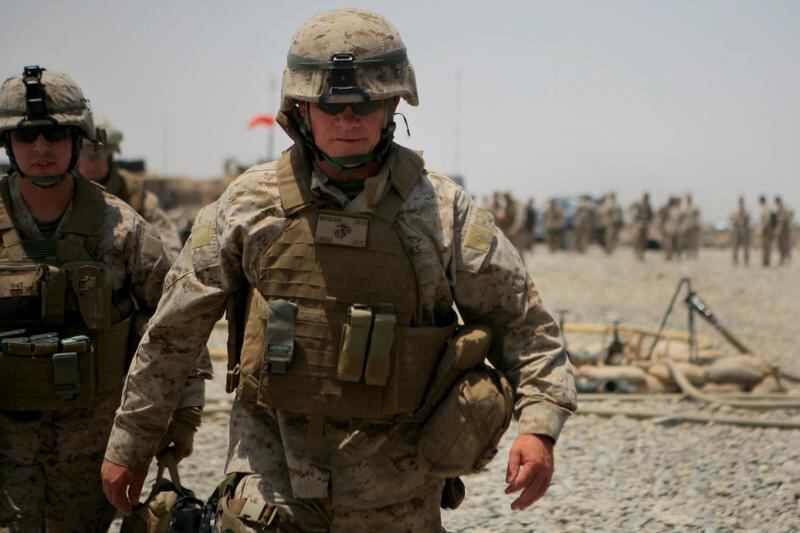Defense Secretary James Mattis has signed orders to send more troops to Afghanistan, but he is not saying how many are going.
At an impromptu Pentagon news conference Thursday, Mattis told reporters that the additional troops going to Afghanistan will help the Afghan security forces continue to lead the fight against Taliban militants and other enemies.
“It’s more advisers. It’s more enablers — fire support, for example — and then some other things,” Mattis said. “I’m not going to give you the details right now until I talk to the Congress.”
RELATED

When asked if the new troops would be in an advisory or combat role, Mattis replied, “Let me just be real clear: When you go into Afghanistan and you’re carrying a gun, you’re going into a combat zone.”
Mattis’s comments came one day after the Defense Department acknowledged that 11,000 U.S. troops are currently deployed in Afghanistan, a troop count far higher than the 8,400 that defense officials previously acknowledged. Mattis explained that the Defense Department had to change its reporting process to more accurately count the troops.
The 11,000 figure includes troops the Pentagon had not counted in the past, such as service members on temporary duty, troops assigned to combat support agencies and counter-terrorism forces, a defense official said on Wednesday.
“I owed the American people transparency — and frankly honesty — on what’s there now.” Mattis said.
Separately, Mattis also said he is withholding judgment on whether transgender people can serve in the military pending a review into the matter.
“I don’t want to pre-judge this issue,” Mattis said on Thursday. “That’s why I am pulling people together who are going to look at combat effectiveness and victory on the battlefield at the least cost.”
RELATED

On Aug. 25, Trump signed a memo that bans transgender men or women from serving in the military, reversing the Obama-era policy that allowed those troops to serve openly and receive medical care.
Estimates suggest that several thousand transgender troops are currently serving in the military, and Mattis is allowing them to continue serving while the Defense Department conducts a six-month study on how to implement the president’s order.
Mattis poured cold water on speculation that his decision to continue the current policy during the review indicates that he disagrees with Trump on allowing transgender people to serve.
“The president gave me the time to look at this,” Mattis said. “He’s told me what he wants — in theory, in broad terms — and now he’s leaving it up to me. Obviously, now I’m going to respond as the president wanted me to.”
When asked if he has a message for transgender troops who worry about whether they will be allowed to continue to serve, Mattis reiterated what he recently told troops overseas: “Everyone just keep holding on until we get through all the fights we’re in.”
He declined to speculate what might result from the study, explaining, “I need to be open to what this group is going to come back with.”





